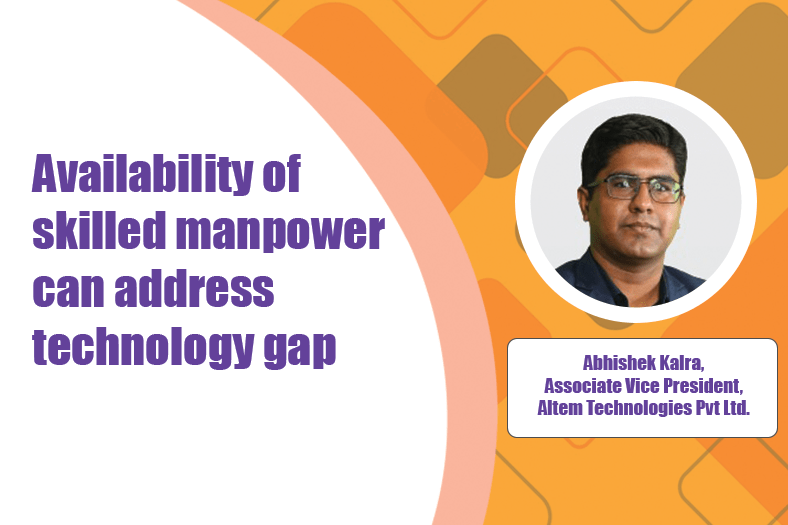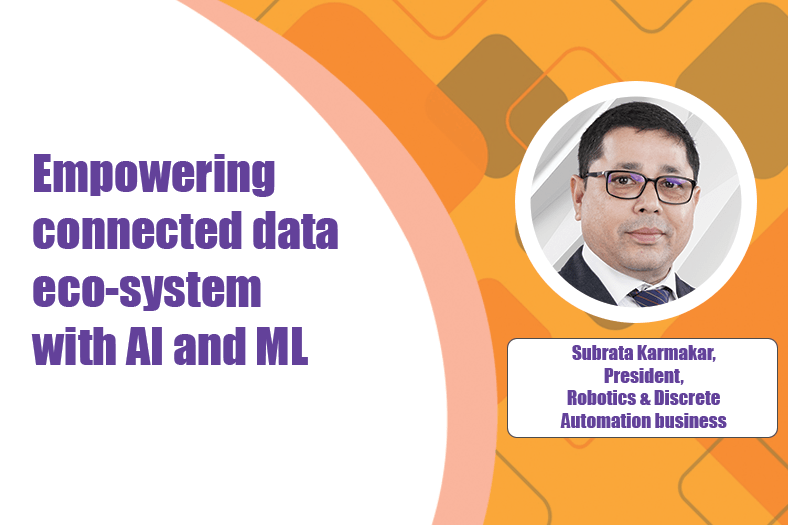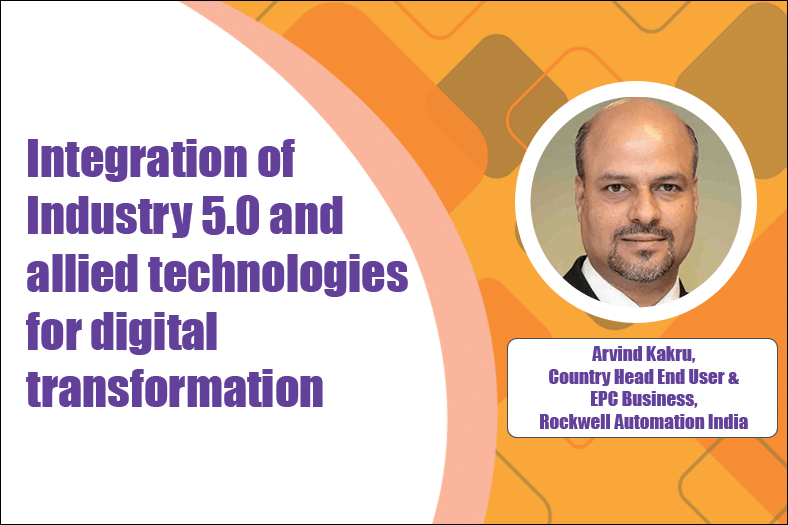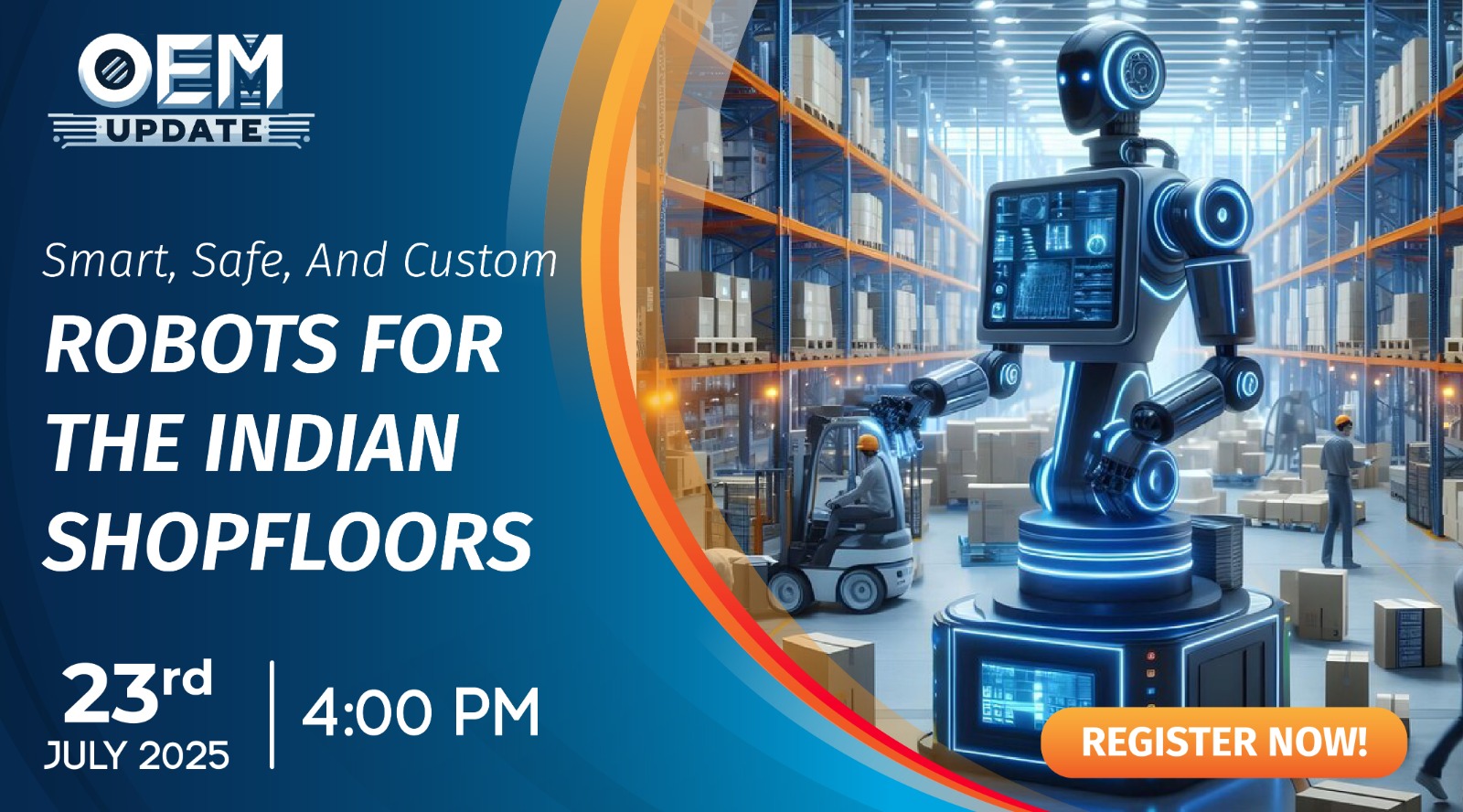Developing innovative and efficient technologies for F&B industry
By OEM Update Editorial June 9, 2021 1:16 pm IST
Adoption and implementation of advanced technologies is the ability to create high-quality products at lower costs can lead big.
Talking about the challenges in adopting digital and automated technologies in the SME and MSME sector Abhishek Kalra, Associate Vice President- Altem Technologies Pvt Ltd., tells explains how the unavailability skilled labour and lack of technical training can impact the sector’s growth.
Embracing Industry 4.0 and Industry 5.0 technologies
I do think we have a bit of way to go as the implementation of Industry 4.0 is not entirely implemented. The larger organisations have adopted most of the components of Industry 4.0 but the interconnection between those components is still imperfect if not missing. The smaller Industries and the manufacturing sector of the MSME sector are lagging behind. The principal reasons behind this are the availability of very low-cost workforce which causes the smaller industries to question the need of Industry 4.0. Another challenge is lack of clarity in effective methods of adoption and lack of skills. So before thinking about the next step the industry as a whole need to strengthen the base of the Industry 4.0 adoption and ensure that everyone in the supply chain is enabled and has implemented the solutions.
With the advent of 3D Printing, AI, robotics, connected data enterprise, what are the major areas where the industry witnessed transformations and business prospects?
The principal benefit has been to reduce product to market costs and time and improve quality of products in general. 3D Printing and AI have enabled organisations to conceptualise and design better products, understand the shortcomings, and improve them before its too late. Better products mean happier customers which is the key to any business. While robotics and automated advanced manufacturing in general have enabled to reduce the manufacturing costs, increase production outputs while ensuring highest possible qualities adding to higher customer satisfaction. On the other hand, OEMs and larger manufacturers are also preferring tier suppliers with technologically advanced manufacturing practices.
How is AI, 3D printing, machine learning and robotics bridging the manufacturing technology gap in Indian industries?The biggest advantage that Indian manufactures are getting from implementation of advanced technologies is the ability to create high quality products at lower costs which is opening up doors of global markets to India. We have a lot of customers from manufacturing to consumer products to healthcare who are developing products in India and are maintaining the highest technical quality gap with 3D printing and robotics but are still able to keep the final product cost low as workforce and other overheads are much lower in India than the rest of the world. It’s a model that is the prime reason for the success of China (and some other south east Asian countries) and India is catching up. We do have a long way to go to make this an obvious and common benefit/feature of Indian manufacturing and then we can aim/dream to beat the other South East Asian giants in global markets.
What are the challenges for the SME and MSME sector in adopting factory automation, digitisation, and robotics for efficient manufacturing processes?
So, there are two principal challenges: Availability of very low-cost workforce, which results in smaller companies not bothering to try and adopt. Companies look at short-term costs more seriously than long/midterm outcomes and our industry has a very “we will consider later” attitude which is a big obstacle.
Second: Unavailability of technologically advance workforce. Working in the manufacturing industry I have seen some very advanced machining/manufacturing skills in people but that is the only skill they know and it’s difficult to learn advanced skills beyond their jobs. The industry needs to enable the existing workforce to learn advanced technologies. There is also a big skill gap in the new workforce where the government and academia need to think beyond the “curriculum” and introduce ways to enable students on advanced technologies.
I also feel that government can incentivise adoption of Industry 4.0, provide tax benefits etc. which will help the industry evolve and adopt faster.
For more info, visit: https://www.altem.com/3d-printing/
Cookie Consent
We use cookies to personalize your experience. By continuing to visit this website you agree to our Terms & Conditions, Privacy Policy and Cookie Policy.









